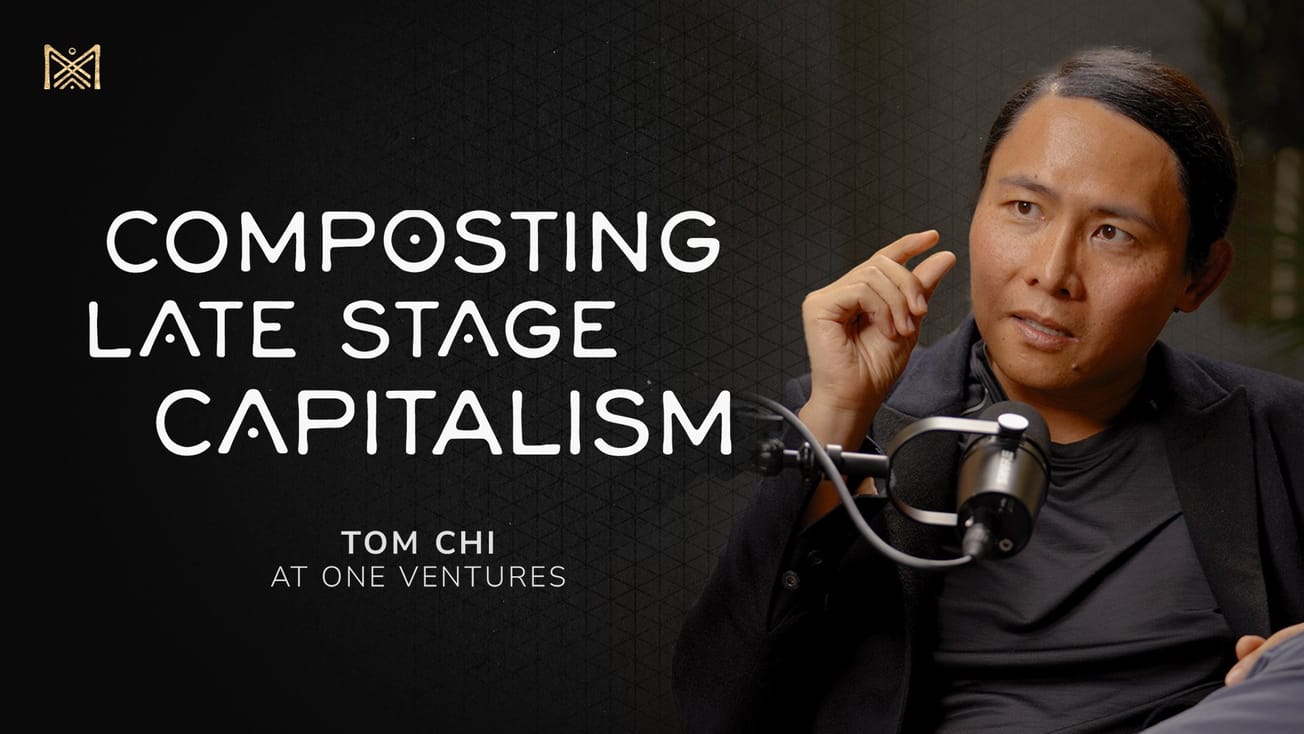Buckminster (Bucky) Fuller, the genius, proposed something radical: design from abundance. It's not about naive optimism; it's about smart, systems-level thinking that could revolutionize our relationship with this planet we call home.
Better Worlds shares this podcast from the interview series “The Regeneration Will be Funded” by Ma Earth Media. In this episode, Dr. Stuart Cowan, Executive Director of the Buckminster Fuller Institute, speaks to host Matthew Monahan about how BFI today is carrying Bucky’s torch forward, adapting his groundbreaking ideas to address our most pressing global challenges and bridging the visionary ideas of the past with the urgent needs of the present and future.
Stuart shares his personal journey to BFI, which started with exposure to the Whole Earth Catalog, which opened his eyes to abundance and commons-based design, concepts that are in stark contrast to the scarcity mindset that dominates much of our economic and political thinking. He explored Bucky’s ideas freeing humanity from constant struggles over basic resources by putting planetary resources, like a global energy grid, under common ownership to provide near-free, abundant energy for all. It is a radical rethink about everything from technology stacks to financial flows to governance structures.
The BFI Design Lab: Carrying the Vision Forward
Stuart outlined how BFI's Design Lab’s work to actualize Fuller's vision in the modern context. Key focus areas include:
- Bioregional Resilience and Regeneration: Developing tools and processes for watershed-scale planning and regeneration.
- Indigenous Knowledge Integration: Partnering with groups like the Indigenous Knowledge Systems Lab to bridge indigenous wisdom with modern sustainability efforts.
- Planetary Regeneration Alliance: A collaboration of nine organizations working to design commons-based systems for global regeneration.
- Planetary Civics: Exploring new governance models for planetary-scale ecological systems like atmospheric rivers or glaciers.
Indigenous Knowledge and Co-Design
Stuart stressed that BFI's work in the integration of indigenous knowledge and co-design processes is not just an ethical imperative but a practical necessity, as indigenous cultures hold crucial wisdom for sustainable living and adapting to extreme events.
BFI is partnering with Indigenous organizations to support land back initiatives and indigenous-led ecological restoration projects.
Join us as we explore how Fuller's legacy, combined with cutting-edge thinking on regenerative systems, can guide us towards a more sustainable, equitable, and vibrant future.
About Stuart Cowan
Dr. Stuart Cowan is a regenerative design and finance expert with over 25 years of experience. He is currently the Executive Director of the Buckminster Fuller Institute and co-founded Autopoiesis LLC, where he applies complex systems models to regenerate communities, ecosystems, and organizations. He has led transdisciplinary initiatives for the Capital Institute, Smart Cities Council, and Ecotrust, and co-authored Ecological Design, a seminal work on integrating ecology with design. Stuart holds a Ph.D. in Applied Mathematics from U.C. Berkeley and has taught at various institutions including U.C. Berkeley and Naropa University.
EPISODE RESOURCES
- BFI Design Lab: https://www.bfi.org/programs/bfi-design-lab/
- World Game: https://www.bfi.org/about-fuller/big-ideas/world-game/
- Ecological Design book: https://www.amazon.com/dp/1597261416
- Indigenous Knowledge Systems Lab: https://ikslab.deakin.edu.au/
- Stewart Brand: https://en.wikipedia.org/wiki/Stewart_Brand
- Whole Earth Catalog: https://en.wikipedia.org/wiki/Whole_Earth_Catalog
- Indigenous Rewilding Network: https://flowerhill.institute/rewilding
- Planetary Regeneration Alliance: https://www.bfi.org/programs/bfi-design-lab/bioregional-resilience-regeneration/
- AIME Mentoring: https://www.aimementoring.com/
- BioFi Project: https://www.biofi.earth/
- Finance for Gaia: https://www.financeforgaia.com/
- Open Future Coalition: https://www.openfuturecoalition.org/
- One Earth: https://www.oneearth.org/
- Dark Matter Labs: https://darkmatterlabs.org/
- Royal Melbourne Institute of Technology: https://www.rmit.edu.au/
- Daniel Schmachtenberger: https://civilizationemerging.com/










